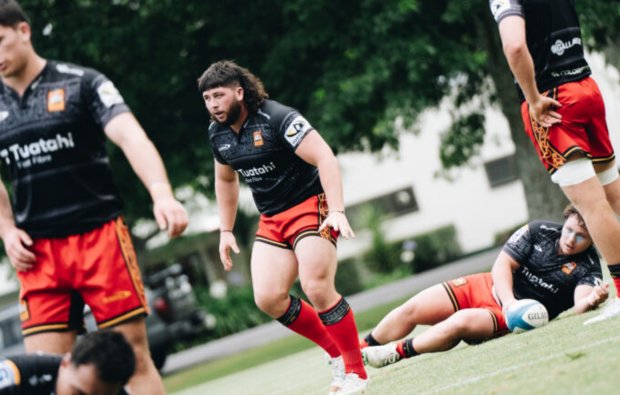New Zealand, Australia, South Africa and Argentina will all hope to find form at the tournament ahead of the Rugby World Cup in Japan.
The Rugby Championship begins this weekend, with the four nations keen to find form ahead of the upcoming Rugby World Cup in Japan.
New Zealand have won the tournament in each of the past three years and the All Blacks are favourites to once again finish above Australia, Argentina and South Africa.
We run the rule over the quartet ahead of the start of the Rugby Championship, where teams will only face each other once in a World Cup year.
NEW ZEALAND
The All Blacks are chasing more than just a fourth successive title and third consecutive World Cup in the coming months, with a slice of history also on the line. No team has ever won the Rugby Championship - or the Tri-Nations, as it was previously known - and also lifted that year's World Cup.
New Zealand were beaten by South Africa in Wellington during last year's Rugby Championship - the first time in nine years the Springboks had won an away game against the All Blacks - while a 16-9 defeat to Ireland in November will have given the rest of the rugby world further encouragement.
Sonny Bill Williams, who will not feature against Argentina on Saturday, has had an injury-hit Super Rugby season and Kieran Read and Sam Whitelock will be rested for the Pumas clash. However, this is a star-studded team regardless - one that contains 2016 and 2017 World Rugby Player of the Year Beauden Barrett - and they remain the gold standard.
SOUTH AFRICA
The Springboks were runners-up last year and might have finished top of the pile had they not thrown away a 30-13 lead against New Zealand in Pretoria after beating them in their own backyard. They ended the year with seven wins from 14 games so consistency will be the key.
A home Test series success over England was a sign South Africa could be a team to fear under Rassie Erasmus, whose decision to relax the rules on selecting European-based players has paid dividends.
Fly-half Handre Pollard was brilliant during the Super Rugby season, finishing as the league's leading point scorer, though he will be rested against the Wallabies in the opener and Aphiwe Dyantyi is sidelined by a hamstring problem.
AUSTRALIA
The Wallabies endured a horrendous 2018, losing nine of their 13 Tests. They suffered three heavy defeats to the All Blacks and were beaten by both Argentina and South Africa.
Australia slipped to their lowest-ever ranking of seventh following their first loss to the Pumas on home soil since 1983 and then lost two of their three November internationals, against Wales and England. They have not played a game in 2019 but former star full-back Israel Folau has already been making headlines, having been sacked by Rugby Australia following a controversial social-media post in which he wrote "hell awaits…drunks, homosexuals, adulterers, liars, fornicators, thieves, atheists and idolaters".
Coach Michael Cheika, who has left Quade Cooper out of his squad, made clear he will walk away if Australia do not lift the World Cup in Japan, so this competition should give an indication to his long-term future. Cancer survivor Christian Lealiifano could make his first appearance in three years at this tournament, though he will miss the South Africa clash with a shoulder problem.
ARGENTINA
The Pumas' 2018 did not start well - two home defeats to Wales preceding a 44-15 thrashing at the hands of Scotland in Resistencia - and coach Daniel Hourcade vacated his post, replaced by Mario Ledesma.
Having never won more than once in a single Rugby Championship campaign before, Argentina claimed two victories in 2018 by overcoming South Africa 32-19 in Mendoza and then beating the Wallabies on Australian soil, but they were winless in November Tests against Ireland, France and Scotland.
The Jaguares, who provide the bulk of this Argentina squad, reached their first-ever Super Rugby final this year, only to be beaten by the Crusaders, but translating that club success on the international stage is an altogether different challenge.








